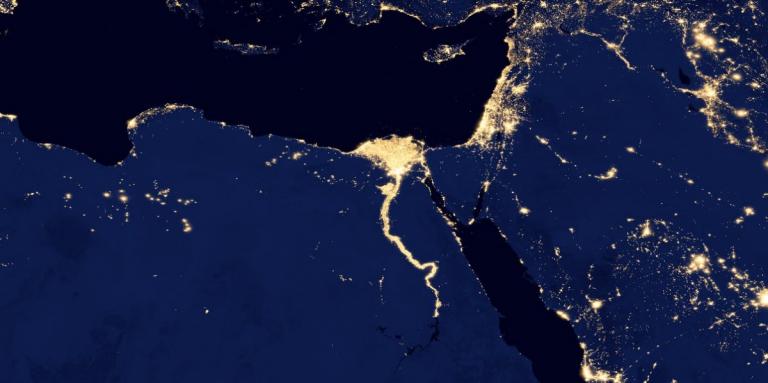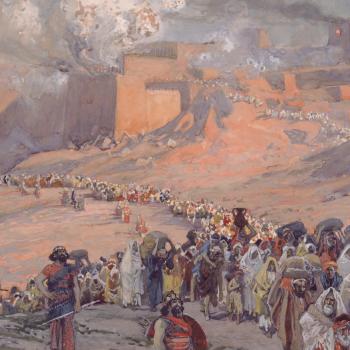
Why was Napoleon Bonaparte’s conquest of Egypt so important? A Western nation had managed to take control of one of the central and largest of Islamic states. Cairo, the greatest Arab city, was under the command of foreigners. Foreigners, of course, had been ruling Egypt for some time. Indeed, they had been ruling since the Persian conquest of Pharaonic Egypt in the sixth century before Christ. Persians, Macedonians (the Ptolemies, who included Cleopatra), Romans, Byzantines, Arabs, Kurds, Turks, Circassians, Ottomans, even Albanians—the rulers had come and gone, but no real Egyptian ruled Egypt for 2500 years until the 1952 revolution, which eventually put Gamal Abdel Nasser, Anwar al-Sadat, Hosni Mubarak, and their successors in power. It was not Napoleon’s foreign nationality, nor his inability to speak Arabic, that marked his occupation of Egypt as something new and different. The surprising fact about the French takeover was not that another foreign elite had replaced the preceding one, but that this new foreign elite was Christian.
And the French were soon replaced by the British, though that hardly mattered. The British were still Christians. Furthermore, before long, many of the other Islamic nations had fallen to Western control, if not to outright Western governance. India was the brightest jewel in Queen Victoria’s crown. Of all her titles, including the title of “Defender of the Faith” that she had inherited from her predecessor, Henry VIII, it is said that she most enjoyed “Empress of India.” Iran, though nominally independent, took orders from the British and Russian ambassadors. Czarist Russia was steadily expanding its control over Muslim territories. The French and Spanish quarreled over Morocco, while the French ruled Algeria. Not to be left out, the Italians conquered Libya.
This was politically humiliating. But it was also troubling in another very important way, a way that goes far beyond mere politics. A hypothetical analogy may help bring home something of the emotional impact that the modern age has had upon many Muslims.
As Latter-day Saints, we are used to hearing of new milestones reached by the Church. Missionaries enter new nations, spectacular new temples are dedicated, stakes are divided, hundreds of thousands of converts enter the faith each year. We have come to expect this. And we expect it not merely because it has happened so regularly in the past, but also because, according to our theology, this is exactly the way it’s supposed to happen. We are living in the dispensation of the fulness of times. The gospel has been restored for the last time. It is the stone cut out of the mountain without hands, a stone that will come ultimately to fill the whole earth.[1]
With a few changes, the last lines could easily have been a description of Islam’s view of itself. Muhammad, Muslims affirm, is the last of God’s messengers, “the seal of the prophets.” Islam is the last revealed religion. Islam is superior to other religions and is destined to triumph. And, indeed, if one looks even briefly at Islamic history, it is clear that Islam did triumph for many years. Within a century of the death of the Prophet, Muslim soldiers had fought their way from the Arabian Peninsula across the vast expanse of North Africa and up through Spain into France. They had eliminated one of the two great Mediterranean empires of the era, the Persian, and had taken away some of the richest provinces of the Byzantines. Egypt, the breadbasket of the ancient Roman Empire, was theirs.
This was the province that the Roman emperor had kept under his own personal command. Other provinces might be left to the theoretical control of the Senate, in keeping with the long-standing myth that the emperor was merely First Citizen of Rome. But not Egypt. It was too important. Its two annual crops, and the endless streams of grain boats crossing and recrossing the Mediterranean between Alexandria and Rome, were essential to the “bread and circuses” that the emperor had offered to the urban masses of his capital city, and by which he kept them satisfied and quiet.
Arabs controlled Iraq, the ancient land of the Tigris and Euphrates. They owned the ancient city of Damascus. The scientific, medical, philosophical schools of Syria and Mesopotamia were theirs. This was not a transient situation. The civilization that grew out of the Arab conquests and the spread of Islam was, for several centuries, the undisputed leader of the world in virtually every field of intellectual activity. We have seen that Arabic was the language of science and mathematics, and of philosophy. Into it poured the riches of the literature and the thought of India and Greece and ancient Persia as well as the unleashed creativity of the Muslims themselves. In a like manner, vast trade networks linked China to Morocco, and central Asia to both coasts of Africa. The wealth of the bazaars of Isfahan, Cairo, Damascus, Baghdad, Istanbul, and Casablanca was staggering.
By contrast, the history of the West can seem backward and provincial during the same period. As pointed out, what we often mean by the history of the West, or even by world history, is really the history of part of a peninsula extending westward from the Eurasian landmass. I remember when the realization of how big the Islamic world was, and how constricted the world of Europe seemed, first hit me with real force. I was sitting in a graduate seminar in Cairo, listening to a masterful lecturer discuss the Safavid, Ottoman, and Mughal Empires. India, Morocco, Iran, central Asia, southeastern Europe — all were interwoven in the vast fabric. Suddenly, the history of western Europe, with its little wars between English counties and its struggles over which warlord should control a portion of coastal France, seemed small and petty. In fact, they reminded me of one of the “rumbles” between the Sharks and the Jets in West Side Story.
I do not mean to be snide; the art and history of the West are rich and fascinating. I myself am a passionate lover of Europe. But our neglect of the East in our “world history” classes cannot be justified. We Westerners have often spoken of “the unchanging East,” but this has merely been a device to conceal our ignorance of the many and tumultuous changes that have constantly affected the region throughout its history. It may help us, and humble us, to know that the Arabs often had this same attitude about us during their prime. One very famous Arab historian, writing near the end of the fourteenth century, surveyed developments in science and the arts around the world. He talked about the Chinese and the Indians and, of course, the Arabs and the Persians. He had much to say of their civilizations. Then he came to northern Europe. “Who knows what’s going on up there?” he said in effect. “And who cares?” Europe was backwater, a nowhere. Nothing of any interest had ever happened in those dense forests and cold murky villages, and, most likely, nothing ever would.
Thus, it came as a shock when the West suddenly took the lead in politics, science, technology, and wealth. And, to make matters worse, the Islamic world almost simultaneously discovered itself to be in clear, evident, and well-advanced decline. Furthermore, it wasn’t only in relative terms that the Islamic world had deteriorated, although this was manifestly a large part of it. The West’s sudden surge forward is a fact historians still do not fully understand. Was it the rise of free markets? The influx of wealth from the Americas? The Protestant work ethic? No one really knows. Whatever the explanation may be, the flowering of Islam had also declined in absolute terms. It was not the creative society it had once been. Little great literature was being produced. Few, if any, new commentaries were appearing on the Qur’an. Instead, there were commentaries on earlier commentaries. There were dictionaries and compilations, but the originality was gone. Worse, perhaps, is that the Islamic world had closed upon itself. Where, in earlier centuries, it had eagerly, almost greedily, consumed and assimilated as much Greek medicine, science, and philosophy as it could get, and where once it had imported Sanskrit and Persian literature as well as astronomy, it now seemed unable to absorb new ideas. Indeed, it often rejected new ideas in a defensive obsession with the past. There had always been a tension between custom (sunna) and innovation (bid’a) within Islam and Islamic culture. Such tension was probably even healthy. But now, it appeared, the past had gained the upper hand.
[1] Daniel 2:34-35. There has actually been a dip in convert numbers in recent years, which may or may not be lasting but which certainly merits thoughtful attention.











